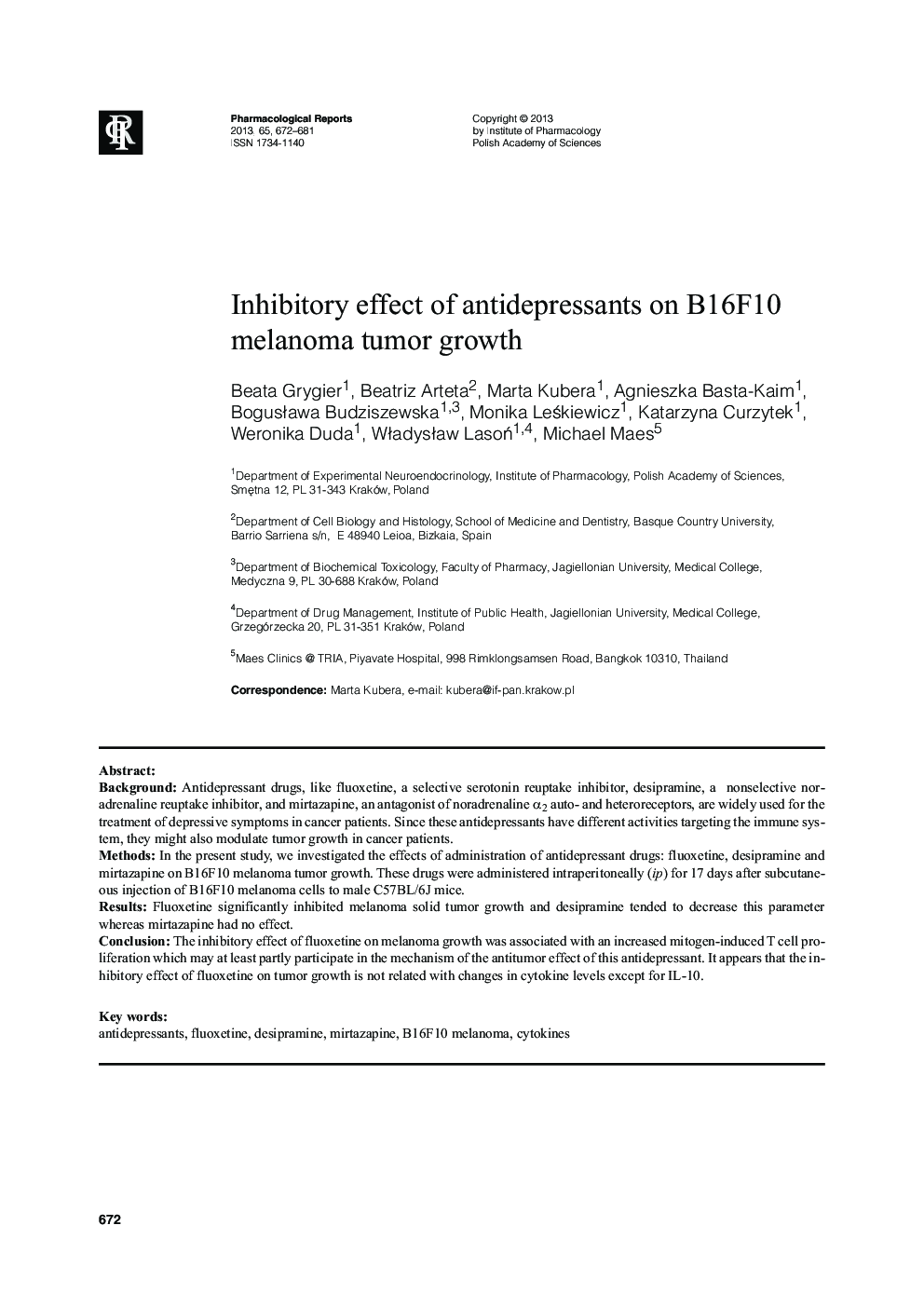| Article ID | Journal | Published Year | Pages | File Type |
|---|---|---|---|---|
| 2012330 | Pharmacological Reports | 2013 | 10 Pages |
BackgroundAntidepressant drugs, like fluoxetine, a selective serotonin reuptake inhibitor, desipramine, a nonselective noradrenaline reuptake inhibitor, and mirtazapine, an antagonist of noradrenaline α2 auto- and heteroreceptors, are widely used for the treatment of depressive symptoms in cancer patients. Since these antidepressants have different activities targeting the immune system, they might also modulate tumor growth in cancer patients.MethodsIn the present study, we investigated the effects of administration of antidepressant drugs: fluoxetine, desipramine and mirtazapine on B16F10 melanoma tumor growth. These drugs were administered intraperitoneally (ip) for 17 days after subcutaneous injection of B16F10 melanoma cells to male C57BL/6J mice.ResultsFluoxetine significantly inhibited melanoma solid tumor growth and desipramine tended to decrease this parameter whereas mirtazapine had no effect.ConclusionThe inhibitory effect of fluoxetine on melanoma growth was associated with an increased mitogen-induced T cell proliferation which may at least partly participate in the mechanism of the antitumor effect of this antidepressant. It appears that the inhibitory effect of fluoxetine on tumor growth is not related with changes in cytokine levels except for IL-10.
